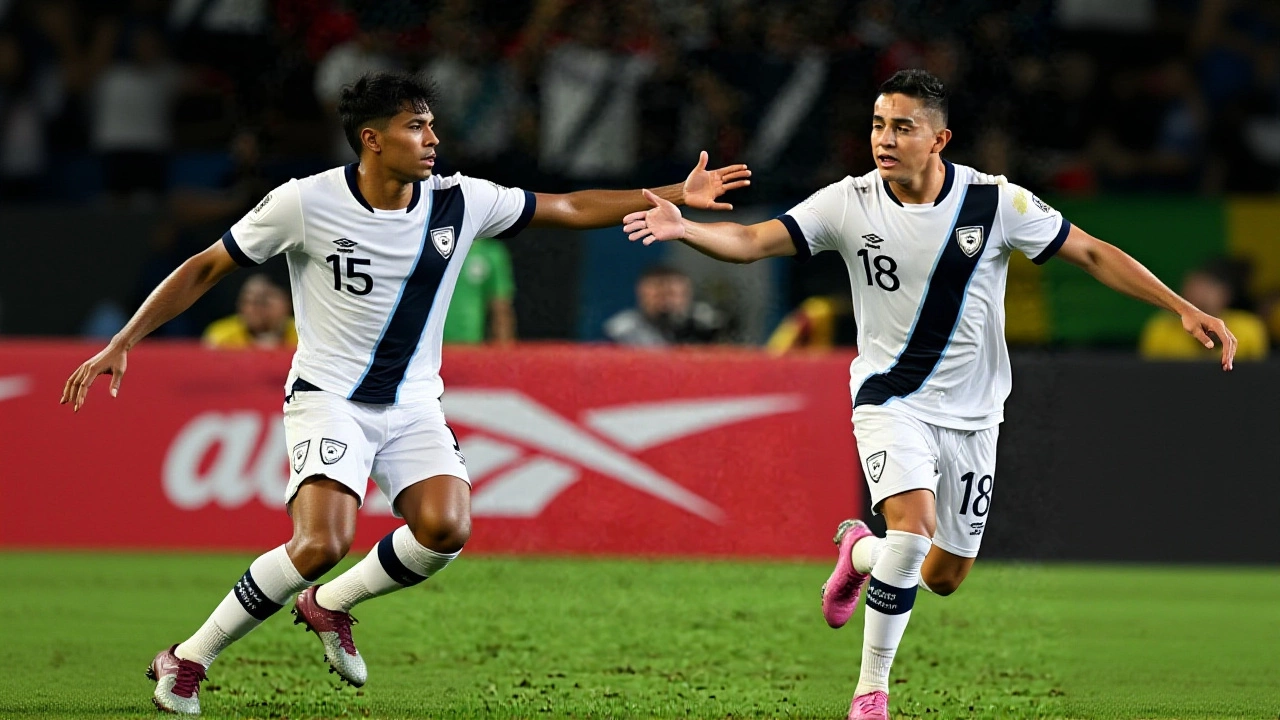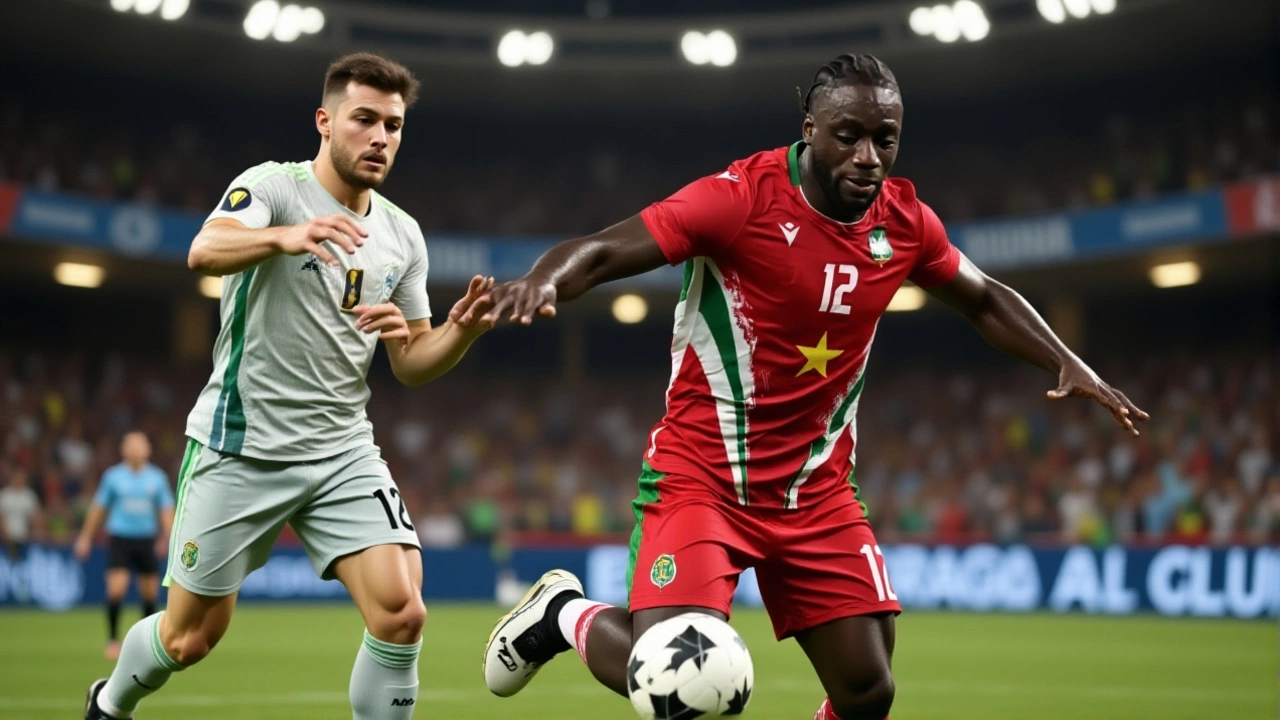On July 31, 2024, the quiet hum of gunfire at the Châteauroux Shooting Centre in central France echoed across the world — not just as sport, but as history. Adriana Ruano Oliva, a 29-year-old Guatemalan shooter with calloused fingers and quiet determination, fired her final shot and raised her hands. Forty-five targets down. An Olympic record. And for the first time in 72 years of Olympic participation, Guatemala stood atop the podium with gold.
A Nation’s Long Wait Ends in Fire and Steel
Guatemala’s Olympic journey began in Helsinki in 1952. For decades, it was a story of near-misses and quiet perseverance. Only two medals before Paris: a silver from race walker Erick Barrondo in London 2012, and now, just one day before Ruano’s win, a bronze from Jean Pierre Brol in men’s trap. Two medals in a single Games. That had never happened. And now? Gold.The women’s trap event, held from July 27 to August 5 at the Châteauroux Shooting Centre, was a brutal test of nerves. Competitors faced 125 targets across three rounds. Ruano didn’t just compete — she dominated. Her 45 hits shattered the previous Olympic record. Silver medalist Silvana Maria Stanco of Italy hit 40. Australia’s Penny Smith took bronze with 32. The margin was decisive. The pressure? Unimaginable.
First Gold. First Woman. First Central American in a Decade
Ruano’s win wasn’t just Guatemala’s first Olympic gold — it was the first medal ever won by a Guatemalan woman. That’s 12 Summer Games, 12 opportunities, zero medals for women. Until now.She’d been here before. In Tokyo 2020, she finished 26th. Back then, she told reporters, "I’m not here to make history. I’m here to shoot straight." Four years later, she did both. Her transformation from mid-pack competitor to Olympic champion was fueled by relentless training, mental coaching, and the quiet support of a nation that rarely saw its athletes shine on this stage.
She joins an exclusive club: only the third Central American to win Olympic gold. The others? Panama’s Irving Saladino in long jump (2008), and Costa Rica’s swimmer Sylvia Poll in the 1988 Seoul Games. For a region often overlooked in global sports, this was seismic.
President, People, and the Power of a Single Shot
Within minutes of Ruano’s win, Bernardo Arévalo de León, Guatemala’s president, posted on X: "Guatemala’s Olympic history is written in gold letters thanks to Adriana Ruano. First Olympic medal for a Guatemalan woman, first gold for our country."It wasn’t just politics. It was emotion. When the national team landed at La Aurora International Airport in Guatemala City, over 5,000 people waited — with flags, drums, and tears. Fireworks lit the night. Children held signs: "Gracias, Adriana." One woman, captured on video by the Associated Press, said in Spanish: "The message is for the people of Guatemala — to show we can do it, despite all the problems we face. Thanks to God, this is a great joy they bring us. Winning two medals? Unforgettable."
Two medals. That’s the new standard. Before Paris, Guatemala had won exactly one Olympic medal in 12 years. Now? Two in three days. The country jumped to 16th place on the Paris 2024 medal table — ahead of nations with far larger populations and budgets.

What This Means for Guatemalan Sports
The Guatemalan Olympic Committee, headquartered in Zone 13 of Guatemala City, called this "a turning point." Funding for shooting sports, historically minimal, is now being reviewed. Youth academies in rural areas — where many of Guatemala’s best athletes come from — are suddenly getting attention."We’ve always had talent," said coach Carlos Mendoza, who trained Ruano since she was 14. "We just never had the resources. Now? People are asking how they can help. That’s the real win."
Other athletes on the team felt the ripple. Jacqueline Solís, who competed in judo, said, "I used to think gold was for countries with pools and gyms. Now I know it’s for those who show up every day, no matter what."
What’s Next? The Ripple Effect
Ruano is already being courted by international sponsors. But her focus remains local. "I want to open a shooting range in my hometown," she told reporters after the ceremony. "For girls. For kids who think they don’t belong in this sport."The Guatemalan government has pledged to increase sports funding by 40% next fiscal year. The National Shooting Center in Châteauroux is now being considered as a training hub for Central American athletes. And in schools across the country, children are picking up air rifles — not for hunting, but for dreams.
History doesn’t always arrive with fanfare. Sometimes, it arrives in silence — the click of a trigger, the crack of a clay target, and then… nothing. Just a girl from Guatemala, arms raised, eyes wide, knowing she just changed everything.
Frequently Asked Questions
How did Adriana Ruano improve so dramatically from Tokyo 2020 to Paris 2024?
After finishing 26th in Tokyo, Ruano worked with a sports psychologist and switched to a lighter, custom-tuned shotgun that reduced recoil. She trained 6 hours a day, six days a week, often in rural areas without climate control. Her hit rate improved from 78% in Tokyo to 90% in Paris — a leap few athletes achieve in a single cycle.
Why is this medal so significant for Central America?
Before Ruano’s win, only two Central Americans had ever won Olympic gold: Panama’s Irving Saladino (2008) and Costa Rica’s Sylvia Poll (1988). With a combined population of under 50 million across the region, Olympic golds are rare. Ruano’s victory proves that with focus and opportunity, even small nations can dominate on the world’s biggest stage.
What’s the history of Guatemala’s Olympic participation?
Guatemala first competed in 1952 and has sent athletes to every Summer Games since 1968. Before Paris 2024, it had only two Olympic medals: Erick Barrondo’s 2012 silver and now, two medals in 2024 — gold and bronze. This is the most successful Games in its history, with 16 athletes competing across six sports, including shooting, judo, and modern pentathlon.
How did Jean Pierre Brol’s bronze medal contribute to the historic moment?
Brol’s bronze on July 30 created momentum. It proved Guatemala could win more than one medal in a single Games — and that shooting was their strength. When Ruano won gold the next day, the team already had a foundation of belief. "We weren’t surprised," said team manager Luis Sandoval. "We knew we were close. Adriana just made it official."
What impact will this have on women’s sports in Guatemala?
Before Ruano, no Guatemalan woman had ever won an Olympic medal. Her victory has triggered a surge in girls joining shooting clubs — registrations have doubled in the past month. The Ministry of Education is now funding school shooting programs in 15 provinces. "She didn’t just win a medal," said youth sports director Maria Lopez. "She rewrote what’s possible for a girl in Guatemala."
Is this likely to lead to more Olympic success for Guatemala?
Absolutely. The government has committed $2.3 million to athlete development over the next four years, with shooting as the priority. Three young shooters — all under 20 — have already qualified for the 2028 Los Angeles Games. With infrastructure and belief now aligned, Guatemala isn’t just a contender — it’s a rising force in Olympic shooting.
